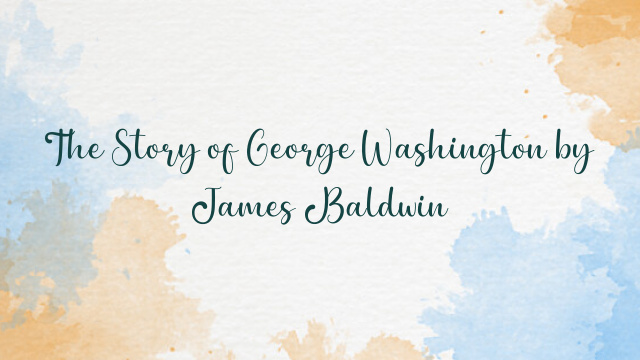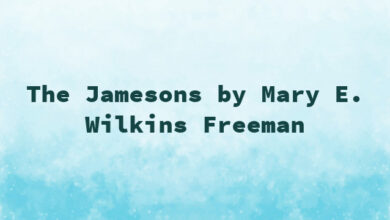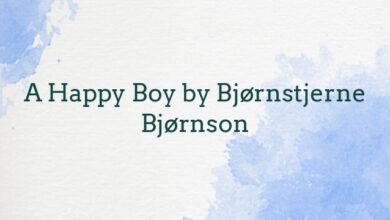
The Story of George Washington by James Baldwin
Chapter VI: The Ohio Country
You have already learned how the English people had control of all that part of our country which borders upon the Atlantic Ocean. You have learned, also, that they had made thirteen great settlements along the coast, while all the vast region west of the mountains remained a wild and unknown land.
Now, because Englishmen had been the first white men to see the line of shore that stretches from Maine to Georgia, they set up a claim to all the land west of that line.
They had no idea how far the land extended. They knew almost nothing about its great rivers, its vasts forests, its lofty mountains, its rich prairies. They cared nothing for the claims of the Indians whose homes were there.
“All the land from ocean to ocean,” they said, “belongs to the King of England.” But there were other people who also had something to say about this matter.
The French had explored the Mississippi River. They had sailed on the Great Lakes. Their hunters and trappers were roaming through the western forests. They had made treaties with the Indians; and they had built trading posts, here and there, along the watercourses.
They said, “The English people may keep their strip of land between the mountains and the sea. But these great river valleys and this country around the Lakes are ours, because we have been the first to explore and make use of them.”
Now, about the time that George Washington was thinking of becoming a sailor, some of the rich planters in Virginia began to hear wonderful stories about a fertile region west of the Alleghanies, watered by a noble river, and rich in game and fur-bearing animals.
This region was called the Ohio Country, from the name of the river; and those who took pains to learn the most about it were satisfied that it would, at some time, be of very great importance to the people who should control it.
And so these Virginian planters and certain Englishmen formed a company called the Ohio Company, the object of which was to explore the country, and make money by establishing trading posts and settlements there. And of this company, Lawrence Washington was one of the chief managers.
Lawrence Washington and his brother George had often talked about this enterprise.
“We shall have trouble with the French,” said Lawrence. “They have already sent men into the Ohio Country; and they are trying in every way to prove that the land belongs to them.”
“It looks as if we should have to drive them out by force,” said George.
“Yes, and there will probably be some hard fighting,” said Lawrence; “and you, as a young man, must get yourself ready to have a hand in it.”
And Lawrence followed this up by persuading the governor of the colony to appoint George as one of the adjutants-general of Virginia.
George was only nineteen years old, but he was now Major Washington, and one of the most promising soldiers in America.
Chapter VII: A Change of Circumstances
Although George Washington spent so much of his time at Greenway Court, he still called Mount Vernon his home. Going down home in the autumn, just before he was twenty years old, he found matters in a sad state, and greatly changed. His brother Lawrence was very ill—indeed, he had been ill a long time. He had tried a trip to England; he had spent a summer at the warm springs; but all to no purpose. He was losing strength every day. The sick man dreaded the coming of cold weather. If he could only go to the warm West Indies before winter set in, perhaps that would prolong his life. Would George go with him? No loving brother could refuse a request like that. The captain of a ship in the West India trade agreed to take them; and so, while it was still pleasant September, the two Washingtons embarked for Barbadoes, which, then as now, belonged to the English. It was the first time that George had ever been outside of his native land, and it proved to be also the last. He took careful notice of everything that he saw; and, in the little note-book which he seems to have always had with him, he wrote a brief account of the trip. He had not been three weeks at Barbadoes before he was taken down with the smallpox; and for a month he was very sick. And so his winter in the West Indies could not have been very pleasant. In February the two brothers returned home to Mount Vernon. Lawrence’s health had not been bettered by the journey. He was now very feeble; but he lingered on until July, when he died. By his will Lawrence Washington left his fine estate of Mount Vernon, and all the rest of his wealth, to his little daughter. But George was to be the daughter’s guardian; and in case of her death, all her vast property was to be his own. And so, before he was quite twenty-one years old, George Washington was settled at Mount Vernon as the manager of one of the richest estates in Virginia. The death of his little niece not long afterward made him the owner of this estate, and, of course, a very wealthy man. But within a brief time, events occurred which called him away from his peaceful employments.
Chapter VIII: A Perilous Journey
Early the very next year news was brought to Virginia that the French were building forts along the Ohio, and making friends with the Indians there. This of course meant that they intended to keep the English out of that country.
The governor of Virginia thought that the time had come to speak out about this matter. He would send a messenger with a letter to these Frenchmen, telling them that all the land belonged to the English, and that no trespassing would be allowed.
The first messenger that he sent became alarmed before he was within a hundred miles of a Frenchman, and went back to say that everything was as good as lost.
It was very plain that a man with some courage must be chosen for such an undertaking.
“I will send Major George Washington,” said the governor. “He is very young, but he is the bravest man in the colony.”
Now, promptness was one of those traits of character which made George Washington the great man which he afterward became. And so, on the very day that he received his appointment he set out for the Ohio Country.
He took with him three white hunters, two Indians, and a famous woodsman, whose name was Christopher Gist. A small tent or two, and such few things as they would need on the journey, were strapped on the backs of horses.
They pushed through the woods in a northwestwardly direction, and at last reached a place called Venango, not very far from where Pittsburg now stands. This was the first outpost of the French; and here Washington met some of the French officers, and heard them talk about what they proposed to do.
Then, after a long ride to the north, they came to another fort. The French commandant was here, and he welcomed Washington with a great show of kindness.
Washington gave him the letter which he had brought from the governor of Virginia.
The commandant read it, and two days afterward gave him an answer.
He said that he would forward the letter to the French governor; but as for the Ohio Country, he had been ordered to hold it, and he meant to do so.
Of course Washington could do nothing further. But it was plain to him that the news ought to be carried back to Virginia without delay.
It was now mid-winter. As no horse could travel through the trackless woods at this time of year, he must make his way on foot.
So, with only the woodsman, Gist, he shouldered his rifle and knapsack, and bravely started home.
It was a terrible journey. The ground was covered with snow; the rivers were frozen; there was not even a path through the forest. If Gist had not been so fine a woodsman they would hardly have seen Virginia again.
Once an Indian shot at Washington from behind a tree. Once the brave young man fell into a river, among floating ice, and would have been drowned but for Gist.
At last they reached the house of a trader on the Monongahela River. There they were kindly welcomed, and urged to stay until the weather should grow milder.
But Washington would not delay.
Sixteen days after that, he was back in Virginia, telling the governor all about his adventures, and giving his opinion about the best way to deal with the French.




